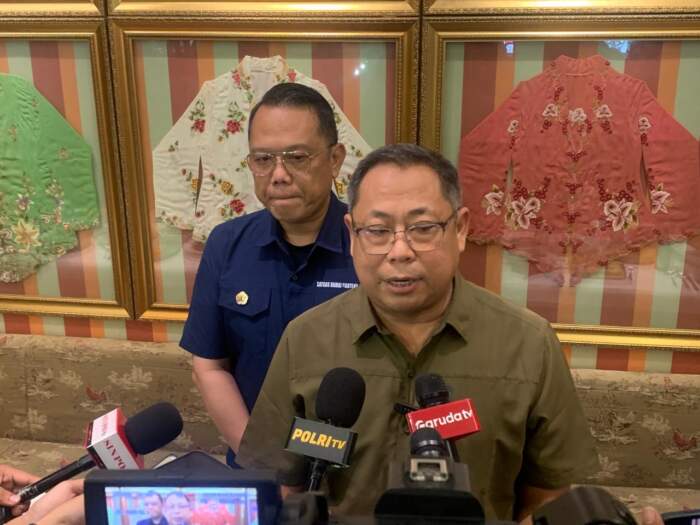Jakarta— Brigadier General of Police Dr. Faizal Ramadhani, S.Sos., S.I.K., M.H., Head of Operation Peace Cartenz 2025, stated that the security situation in Papua remains relatively stable and under control, despite several high-risk areas due to armed criminal groups (KKB). This statement was delivered during a media gathering in Jakarta on Wednesday (16/7/2025).
“Currently, the situation in Papua remains conducive. There are indeed dynamics and vulnerabilities, but everything is still under our control,” said Brig. Gen. Dr. Faizal Ramadhani, accompanied by Head of Public Relations for Operation Peace Cartenz, Chief Commissioner of Police Yusuf Sutejo, S.I.K., M.T., in front of the press.
He further emphasized that addressing conflict and security in Papua cannot be the sole responsibility of the Indonesian National Police (Polri) or the Indonesian Military (TNI). According to him, it is part of a national policy that requires support from all stakeholders.
“Polri cannot stand alone. Handling Papua must be a collective effort involving all stakeholders. This includes security, social, economic, and developmental approaches,” he said.
The Head of Peace Operation Cartenz explained that KKB activities are spread across approximately 14 regencies, with 11 regencies under the active operational area of the Peace Task Force Cartenz. Among these, five regencies have been identified as having high security risks, primarily due to the dominance of young and millennial KKB members.
“These groups recruit youths for various reasons—not just due to pro-independence ideology but also factors like limited job opportunities, developmental disparities, and lack of access to welfare,” he said.
Beyond the KKB, authorities have also identified threats from Political Criminal Groups (KKP), which spread separatist ideologies through intellectual and ideological approaches.
“If the KKB uses weapons, the KKP uses political and ideological narratives. They target intellectual awareness, even among those initially unsympathetic. If not addressed seriously, this could foster new sympathies, which is far more dangerous,” he warned.
The Head of Peace Operation Cartenz also revealed that KKB weapons come from three main sources: domestic and international purchases, seizures, and distribution through local black-market networks. The group is even known to have connections with smugglers from the Philippines and Papua New Guinea.
“Every year, we uncover weapon supply networks. Last March, we arrested perpetrators in possession of 12 firearms and nearly 4,000 rounds of ammunition. They purchase, smuggle, and exploit gaps in border and maritime routes,” he explained.
Polri continues efforts to disrupt weapon distribution chains, including monitoring cross-regional networks extending to North Sulawesi and international border areas.
Regarding funding, the KKB reportedly obtains money from various sources, including criminal activities and misuse of village funds. There are indications that they coerce village and district heads into handing over funds.
“We have arrested several village and district heads proven to have provided funds to this group. The money is used to buy weapons and finance their operations,” he said.
Additionally, Papua’s challenging geography poses a significant obstacle in combating the KKB. The vast territory, limited access, and poor infrastructure hinder law enforcement’s mobility and operational reach.
“Papua’s land area is 2-4 times larger than Java. Poor infrastructure, extreme weather, and logistical challenges complicate all processes,” he said.
More importantly, he stressed that resolving Papua’s conflict requires a more comprehensive approach and a paradigm shift. Relying solely on security operations is insufficient; simultaneous social, economic, and ideological interventions are necessary.
“The issue is not just about weapons. There are disparities, limitations, and historical wounds. Thus, the solution must be based on a new paradigm—comprehensive, not partial. Without unified understanding, long-term technical strategies will be difficult to implement,” concluded the Head of Peace Operation Cartenz.

